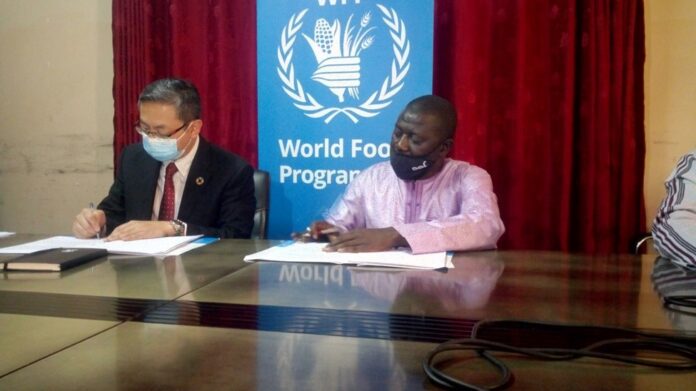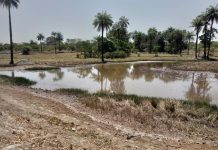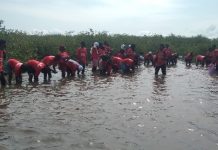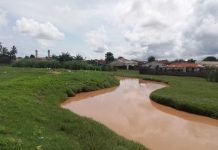By Ndey Sowe
The Ministry of Environment, Climate Change and Natural Resources (MECCNAR) on Wednesday, 15 December, 2021 signed a Memorandum of Understanding (MOU) with the World Food Programme (WFP) in relation to the successful awarding of a project dubbed: “Rural Integrated Climate Adaptation and Resilience Project” otherwise known as RICAR project.
The five-year project worth $10,000,000 is a grant donated to The Gambia by the Adaptation Fund, with WFP serving as the implementing partner and MECCAR as the executing entity.
The overall objective is to enhance the adaptation capacity of the rural population in The Gambia through support to climate-resilience and diversified livelihoods.
The aim is to achieve the following objectives; develop knowledge and awareness to underpin evidence-based resilience building and adaptation activities, particularly for women and youths, implement concrete resilience building and adaptation measures in the project target areas as well as develop incentives, targeting women and youths to name just a few.
The Gambia have recently attended the high-level of the COP26 conference in Glasgow and had significant contribution to the discussion. The Gambia is also being the only country in the world which is “Paris Climate Compatible”, with plans for keeping the goal of limiting global heating to 1.5c above pre-industrial levels by 2100.
“The Gambia is, as you all know, severely hit by the negative impacts of climate changes and constantly affected by climate shocks such as droughts, windstorms, floods, wildfire, and many farmlands are threatened by further salt intrusion or salinization,” said Yasuhiro Tsumura, WFP Representative and Country Director.
He added that not only causing natural disasters, climate changes can also limit natural and productive resources for which people may compete and can lead to community- level conflicts and eventual migration.
“We need to strengthen the resilience of the communities and population to better cope with these shocks,” WFP Yasuhiro stated.
Momodou Mbaye Jabang, Permanent Secretary Ministry of Environment, said the approach of the project is in line with the vision of the National Climate Change Policy of The Gambia (NCCP), which recognizes the interlinked climate threats to sustainable development, wellbeing and ecological integrity.
“The project will focus on a limited number of localities in order to maximise impact in two of the country’s six regions, namely Upper River Region (URR) and Central River Region (CRR),” Jabang said.
Mr Jabang added that these two regions have been identified by the proposal development taskforce led by the ministry of environment, and then will be narrowed down from a possible three regions (URR, CRR and NBR) as set out in the concept note based on the following criteria; climate vulnerability index, poverty level, social-economic, political and environmental variable, including gender, education and nutritional indicators.
Meanwhile, Jabang said the project will also allow for greater effectiveness and sustainability, as it will be more manageable to develop integration between the project’s activities in a smaller geographic area, it will also allow it to reach the most vulnerable beneficiaries in the most vulnerable regions.





















